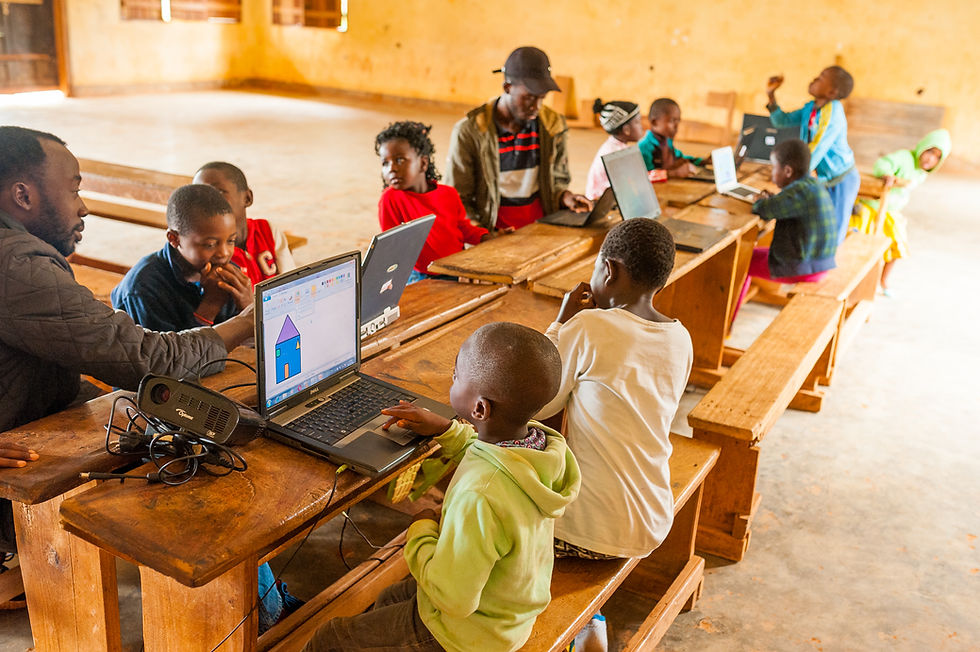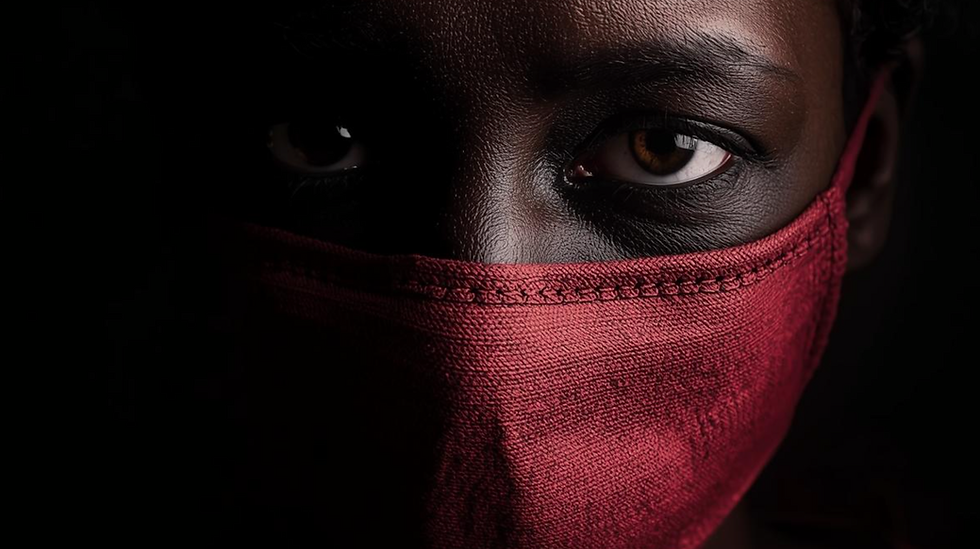How To Tackle Learning Poverty
- Nikki Brown
- Jan 10, 2021
- 5 min read
It's a new year, which is traditionally the time people use to set some new goals and missions. From volunteering at a charity to eating more healthily, we all set ourselves goals at this time of the year in the hope that they'll improve our lives.
At Children of Cameroon, our goal remains the same even as we enter 2021, to help our children to access a good education and break out of the poverty cycle. This year we are even more committed to finding sponsorship for all of our children, helping them to access education and beat learning poverty; providing opportunities for them to achieve their dreams and carve out career paths for themselves.
But what exactly is learning poverty and how can we help to tackle it as we enter a new year?
What is learning poverty?
The definition of Learning Poverty is the share of children who cannot read a simple story by age 10. Reading is seen as a gateway for all learning and as a child progresses through school their reading level can be used as an indicator of their successes in other subjects including maths, science and all other subjects. Although it's possible to learn later in life it's widely believed that children who are unable to read by age 10, or by the end of primary school usually fail to master reading later in their education.
In recent years, it has become clear that many children around the world are not learning to read proficiently and therefore are at risk of not reaching their full potential. 77% of children in Cameroon at late primary age are currently not proficient in reading, while 5% of primary school-aged children are not enrolled in school. In Cameroon reasons for high rates of learning poverty include the ongoing Anglophone Crisis disrupting schooling and making them unsafe places for children to be, the popularity of child marriage in the country forcing girls to leave school, and a lack of qualified teachers and facilities.
Organisations such as the World Bank have set a new global learning target to cut the Learning Poverty rate by at least half before 2030. But how can this be achieved? And what can you do to help?

Ensure proper training for teachers
To learn, any child needs a good teacher. In countries such as Cameroon, teachers need to be provided with the support and tools to help them deliver better lessons and communicate with their class. Training teachers should not just be about telling them what to teach, but how to teach it in a way that will truly help children to learn, remember and be passionate about education. In many developing countries like Cameroon, there is a great shortage of good teachers. As a result, many unqualified teachers step up to educate the nation’s children. By providing training for teachers and ensuring quality lessons, schools stand a better chance of eradicating learning poverty once and for all. However, this comes at a cost, which developing countries like Cameroon, which is in the midst of a crisis, currently struggle to find.
Provide better technology
Technology could be the secret to helping teachers in the developing world to improve their skills and eliminate learning poverty. With the right tools and technology available, teachers can plan lessons more effectively, provide more flexible training options and even help children to learn through alternative methods. In many of Cameroon's schools, there is currently a shortage of basic supplies and so investing in the technology to help teachers may seem far off. However, when the Anglophone crisis ends and the government can invest in education again, this could be a possibility.

Teach in the native language
In Cameroon, the two most common languages are French and English. So much so that the two have evolved to create some slang terms which you can read about in our blog! However, you may be surprised to know that in many countries, teachers don't always teach children in the language they speak at home. What isn't surprising however is that students taught to read in a language they do not speak at home have greater difficulty learning, that seems obvious.
A UNESCO study in 22 developing countries and 160 language groups showed that children who learn their mother tongue are more likely to be enrolled in school in the first place and that not being taught in their home language is a significant reason for dropping out of school. To tackle learning poverty, schools must first understand their children and provide options for them based on their first language.
Make schools safer
In recent years Cameroon's schools have been under threat; many were attacked and burned down as a result of the Anglophone crisis. This meant that schools weren't the safest places to be. While many children have now been able to return to school, the threat of the COVID-19 pandemic is making schools less safe once again, helping to reinforce learning poverty.
The pandemic is amplifying the global learning crisis that already existed: it could increase the percentage of primary-school-age children living in learning poverty by 10%, and it puts this generation of students at risk of losing about $10 trillion in future lifetime earnings. In order to ensure that this doesn't happen, schools need the correct hygiene and safety equipment from face masks and PPE to soap and disinfectants. Countries like Cameroon cannot provide the same level of remote learning as the UK. Therefore, it's vital that Cameroon's schools are not forced to close again if their children are to beat learning poverty.

Sponsor a child
While most of the topics we've discussed so far in this blog are out of individual control, sponsoring a child is a way in which anyone can help to tackle learning poverty. Sponsoring a child helps children from even the poorest communities to access education, children who may not normally be able to go to school. In Cameroon, school isn't free after the age of 12, and therefore, many children have to leave after primary school, stunting their chances at creating a better life and breaking out of the poverty cycle.
By sponsoring a child, you can help contribute towards their education or even fund it completely. This saves families from financial worries and helps children to go on and achieve their dreams. It means that not only will your child be able to read and understand stories but could go on to become a lawyer, doctor, teacher or anything they choose. Sponsoring a child and beating learning poverty opens up a world of opportunity that we would often take for granted.
If you'd like to learn more about sponsoring a child in 2021 and how you can make a real difference to the lives of our children in Cameroon, then visit our sponsorship page.




Comments